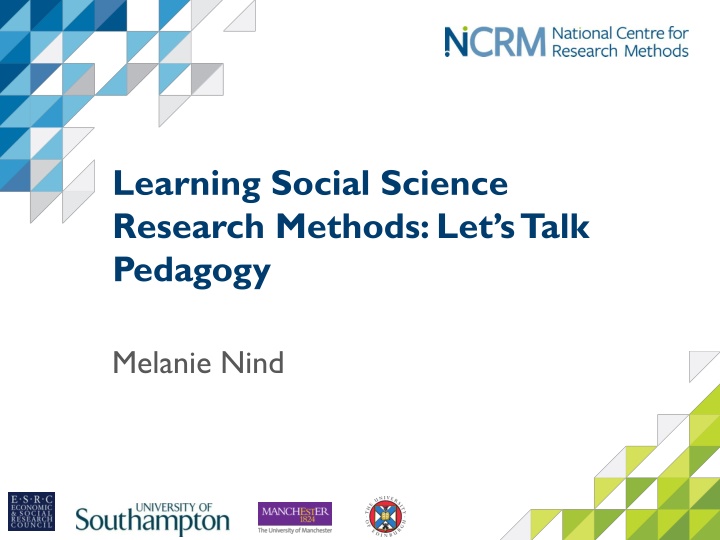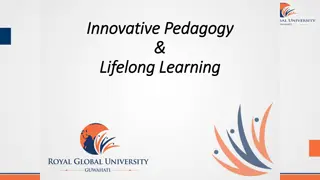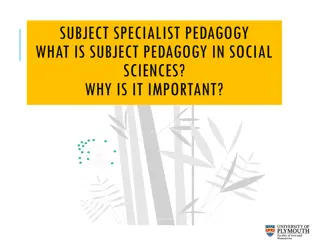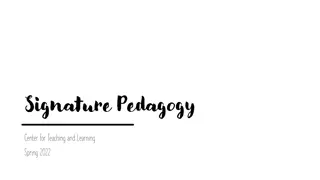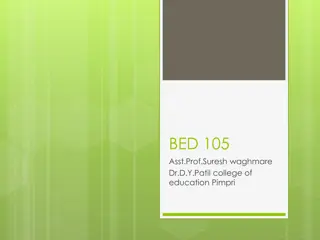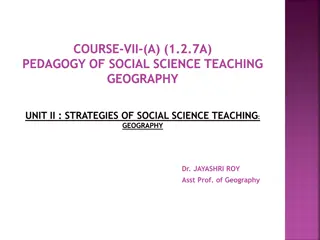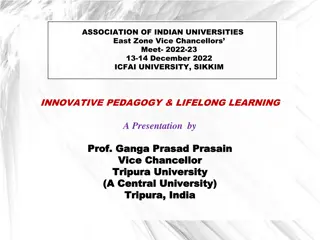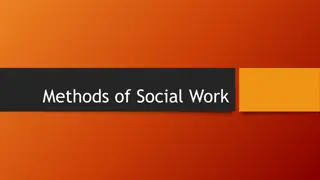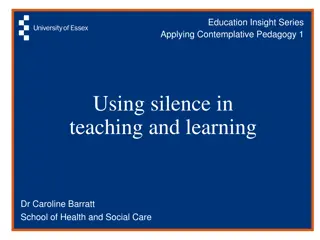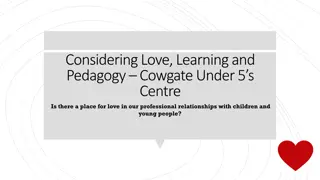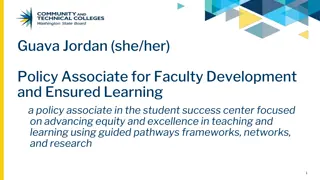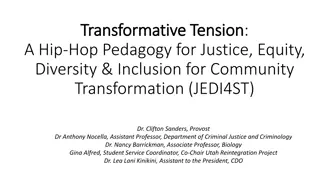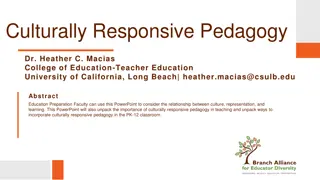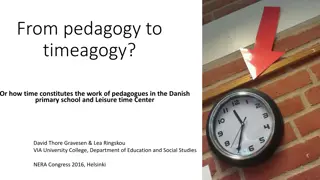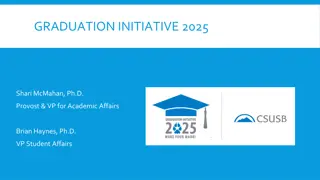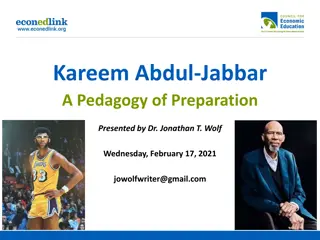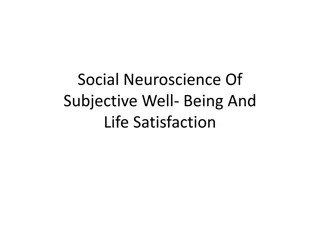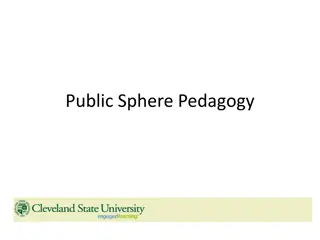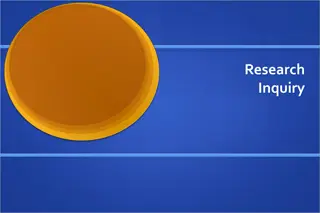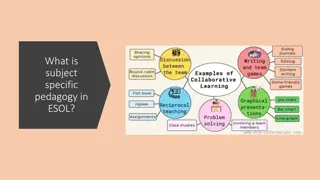Pedagogy in Social Science Research Methods
Delve into the multifaceted realm of pedagogy in social science research methods, as discussed by Melanie Nind. Discover the complexities beyond traditional teaching methods, including theories, beliefs, and hidden dimensions shaping the learning process. Engage in thought-provoking questions and discussions challenging conventional notions of pedagogy.
Download Presentation

Please find below an Image/Link to download the presentation.
The content on the website is provided AS IS for your information and personal use only. It may not be sold, licensed, or shared on other websites without obtaining consent from the author.If you encounter any issues during the download, it is possible that the publisher has removed the file from their server.
You are allowed to download the files provided on this website for personal or commercial use, subject to the condition that they are used lawfully. All files are the property of their respective owners.
The content on the website is provided AS IS for your information and personal use only. It may not be sold, licensed, or shared on other websites without obtaining consent from the author.
E N D
Presentation Transcript
Learning Social Science Research Methods: Let s Talk Pedagogy Melanie Nind
What we have in store Data and questions from the NCRM study of methods pedagogy and beyond Input from methods teachers, learners, researchers, methodologists and you in all our multiple identities! Provocative questions and discussion Probably not many answers! 2
What is pedagogy? It is not: just teaching but it incorporates theories, beliefs, policies and controversies that inform and shape it (Alexander 2000, 540) It is not: just the traditionally more explicit dimensions such as the specified curriculum, the learning outcomes sought, the assessment approaches it is also the tacit, the often hidden from view, the silences, the absences and the usually invisible (Nind, Curtin & Hall in press)
Defining it the act of teaching together with its attendant discourse (Alexander 2009, 11) A choice of pedagogy inevitably communicates a conception of the learning process and the learner. Pedagogy is never innocent. It is a medium that carries its own message. (Bruner 1996: 63) 4
Thinking about pedagogy pedagogy as specified pedagogy as enacted pedagogy as experienced pedagogy as hard to know multiple pedagogies
Key references Alexander, R. 2000. Culture and Pedagogy: International Comparisons in Primary Education, Oxford: Blackwell. Alexander, R. 2009. Pedagogy, Culture and the Power of Comparison, in H. Daniels, H. Lauder and J. Porter (eds), Educational Theories, Cultures and Learning: A Critical Perspective , 10 26, Abingdon: Routledge. Bruner, J. 1996. The Culture of Education , Cambridge, MA: Harvard University Press. Nind, M., Curtin, A. & Hall, K. in press, Research Methods for Pedagogy. London: Bloomsbury.
